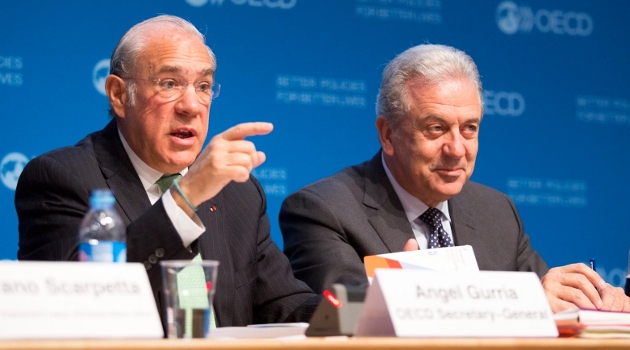Originally published by Cayman Financial Review on February 4, 2019.
A regional meeting for the Inclusive Framework on BEPS was held Nov. 7-9, 2018, in Yerevan, Armenia. Over 60 delegates from 16 countries attended, where they discussed recent developments as regards to peer review mechanisms, timelines for implement BEPS minimum standards, and the signing of the Multilateral Instrument to implement tax-treaty related BEPS measures. Countries also exchanged views on how they are using country-by-country report.
The Inclusive Framework released a progress report in November assessing 53 “preferential tax regimes” as part of its Action 5. The new assessment brings the cumulative reviewed regimes to 246. Of them, three are presently considered harmful, including France’s reduced rate for long term capital gains from the licensing of intellectual property rights. Another three are considered potentially harmful, while 78 are in the process of being eliminated or amended, and 46 have been amended or abolished.
As an additional part of the Action 5 peer review and monitoring process, the OECD reported significant progress on increasing transparency on tax rulings. Its second annual report on the exchange of information on tax rulings found that 60 percent of recommendations issued in the first annual report were successfully addressed.
Aruba, Antiqua and Barbuda, Dominica, Saint Vincent and the Grenadines, Grenada, and Cabo Verde joined the Inclusive Framework as new members, bringing it to 124 participating countries and jurisdictions. Ecuador and Qatar signed the Multilateral Convention on Mutual Administrative Assistance in Tax Matters, the instrument for implementation of the Common Reporting Standard, and Ecuador also joined 103 other jurisdictions and signed the CRS Mutlilateral Competent Authority Agreement, the international agreement for implementing automatic exchange under the Convention.
The Global Forum on Transparency and Exchange of Information for Tax Purposes in October published seven peer reviews assessing compliance with the exchange of information on request standard. Bahrain and Singapore were rated “compliant,” while Austria, Aruba, Brazil, Saint Kitts and Nevis, and the United Kingdom were rated “largely compliant.”
The Global Forum then held its annual meeting in Punta del Este, Uruguay on Nov. 20-22, 2018, hosting over 200 delegates from more than 100 jurisdictions, international organizations and regional groups. The meeting marked the widespread rollout of automatic exchange of financial account information, with 86 jurisdictions having completed around 4,500 bilateral exchanges. The Global Forum will begin assessing the effectiveness of the AEOI Standard in practice in 2020. Its next plenary meeting to be held in 2019 will mark the tenth anniversary of the Global Forum, which upped its membership to 154 with the addition of Oman.
The OECD announced a “clamp down” on residence and citizenship by investment programs and released a list of programs that, according to the OECD, “pose a high-risk to the integrity of CRS.” Notably, one of the criteria they used for identifying high-risk programs is whether a jurisdiction offered “a low personal income tax rate on offshore financial assets.” Programs in 21 jurisdictions were initially identified, but those of five jurisdictions have been removed based on actions taken in response to the report.
“Financial institutions,” warns the OECD, “are required to take the outcome of the OECD’s analysis of high-risk CBI/RBI schemes into account when performing their CRS due diligence obligations.” Specifically, they must question and give extra scrutiny to individuals claiming tax residence from listed jurisdictions.
Economic surveys were released for Czech Republic, Indonesia, the United States, Netherlands, Spain, and Australia. The Czech Republic was reported as having a thriving economy but as needing to address the challenges of an aging society. Indonesia was urged to raise taxes to enable new government spending. The United States was noted as experiencing one of the longest expansions on record since the end of the Great Recession, and the recent tax reforms are expected to boost investment activity. It was recommended that the U.S. rein in spending growth through entitlement reforms, increase infrastructure investment, put a price on carbon, and address the opioid crisis.
In Spain, a strong recovery was observed, though slower growth was predicted going forward. For Netherlands, economic growth was reported as strong, but significant near-term risks were identified, including the impact of low interest rates on financial institutions, rapidly rising home prices, and increased global protectionism. Vulnerabilities in Australia’s housing market were similarly contrasted with its strong growth.
As part of the OECD’s Going Digital project, an October “Tax and digitalization” policy note provided an overview on the changing policy landscape due to digitalization. In addition to summarizing the OECD’s previous work on digitalization, primarily through BEPS, the policy note highlighted the issues raised by the rapid growth in multi-sided online platforms driving the gig economy, including understanding the tax implications of the changing nature of work, and ensuring equivalent tax treatment between online platforms and their competitors. The report concludes, “An update on the OECD’s work across these areas will form part of the report on tax and digitalization to be prepared by the Inclusive Framework that will be delivered to the G20 in 2020.”
Finally, a joint OECD/World Bank report, “Improving Co-operation between Tax Authorities and Anti-Corruption Authorities in Combating Tax Crime and Corruption”, urges a “whole-of-government” approach to combat tax evasion. Given that the OECD’s own annual Revenue Statistics publication found that tax revenues in OECD countries have continued to increase, the joint report continues the OECD’s tradition of exaggerating the impact of tax evasion on global revenues in order to justify its relentless mission creep and expansions of power.

